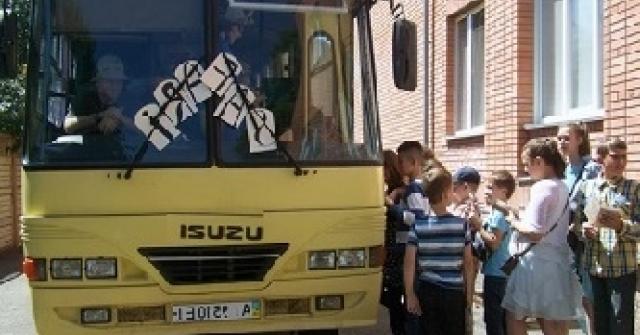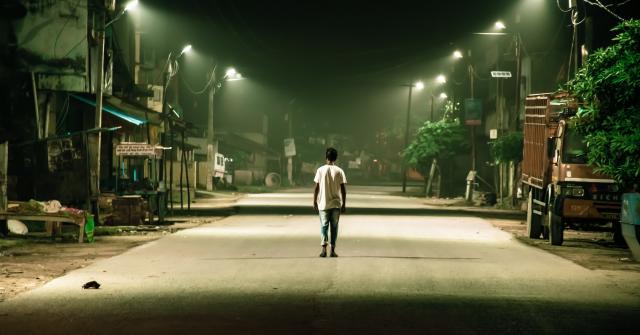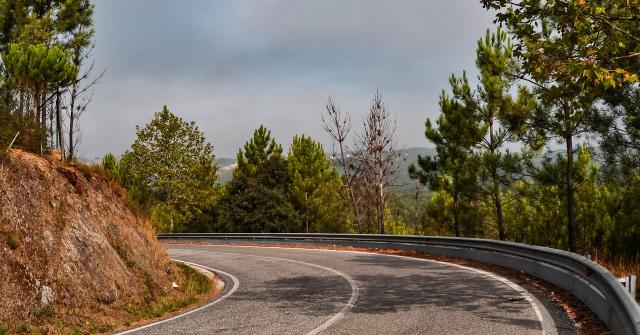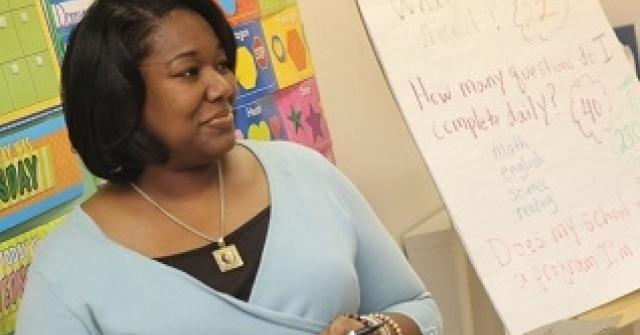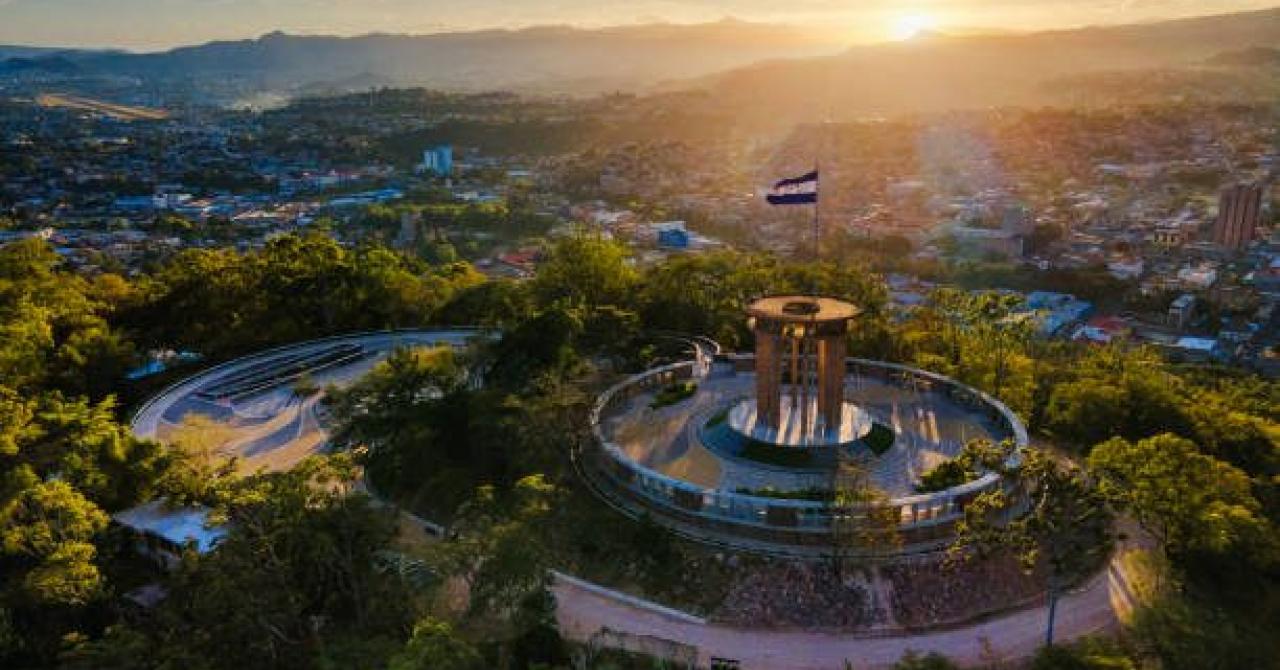
George Patterson (1932–2022); A Daughter’s Testimony
On February 15, 2022, my father died at 89 years of age. At the memorial a week later, George Patterson’s impact and legacy in world missions shone in the outpouring of sentiment and accolades, many from people I’d never met. My husband and I have been church-planting missionaries all our adult lives and intersected with his world of influence at many points, yet we still find ourselves surprised at how far his ideas have penetrated. The mission world has lost a giant upon whose shoulders many, many of us have been lifted to see better and go further than we could otherwise have done.
And we have lost a friend—family and disciples alike. My father was always ready to play a game, to tell a story, to improvise a skit. If you had the privilege of being mentored by George Patterson, you always became a friend, too. No mentee didn’t also learn to play pinocle or other card games or was exempt from some practical joke, and all were welcomed as equals.
If you only ever knew him from his teaching ministry, after leaving Honduras in the mid-eighties, you would perhaps think he was more extroverted than he really was. He often upset established norms by running around the classroom, pulling together dramas that required yelling and chasing, putting the chairs in a circle or getting rid of them altogether. His final exams could just as easily be about the song your group created to highlight the commands of Christ as anything else.
I learned very early on that mission could consume my father. Even though his whole ministry was to empower others, the demands were endless. That makes the memories of playing games and family time that much more precious.
My parents, my sister Angela and I moved to Honduras in the mid-60s under the Conservative Baptist Home Mission Society. In the years previous, my father had completed his training at Western Theological Seminary in 1964 and had pastored in California and Oregon. It was then, pastoring, that he felt God calling his family to cross-cultural missions. One of my earliest memories is retrieving a letter in the mailbox at our little house in Portland, OR, that I understood came from God, telling us to go to Honduras.
My father’s first responsibility in Honduras was to help lead the rural Conservative Baptist Bible school established many years previously. The norm in those days was to draw in young men from the villages and over two or three years, train them as best as possible in the same pattern as the North American Church was doing.
Honduras was ripe for spiritual harvest in the 60s and 70s, especially in the rural areas. Although people considered themselves to be Catholic, most villagers rarely saw a priest more than once or twice a year. They had neither the animist beliefs of the Indian population nor the daily Mass and Communion of the urban Catholic church to channel their spiritual hunger, so when the gospel arrived, people responded. But churches were only growing slowly, reliant on outside leadership and resources.
As my father fulfilled his teaching role, he couldn’t help realizing several things that changed his life, the life of the Honduran church, and then the world. He saw that the candidates for pastorship were young men with few family or community responsibilities and were not the natural leaders of these villages. He also noticed that upon graduating they almost always moved to the larger urban areas to look for work as paid and titled leaders in larger churches. None of them wanted to stay in the countryside and help lead the small struggling churches that couldn’t pay them much or give them status.
During that time my father had the privilege to intersect briefly with Ralph Winter's work in Guatemala in the Presbyterian church, where initial experiments in Theological Education by Extension (TEE) were unfolding. Here was a significant step forward, but my father wanted to go further. He shut the Bible school down and began to disciple the middle-aged family men in the local church.These natural leaders were semi-literate heads of households. My father told me how in those first couple years that he came to this radical decision, he observed such men looking into the church windows, hesitant to come inside. He wondered what it would take to build a church with strong, non-imported leadership that would draw these men into the church.
So, taking members of the church with him, my father began to visit homes in the nearby villages, concentrating on heads of households. When people responded to the gospel, he baptized them and recognized them as churches—real churches that served the sacraments and ordained leaders. The first man he baptized was killed with a machete in his own home, his faith an excuse for violence. At his funeral, much of his family turned to Christ and a church was born. I remember when my father came back from that village with machete slashes in the seat of his motorcycle. The gospel was resisted but could not be withstood.
To disciple the new church leaders, my father introduced a more reproducible system of education. He had been turning over and over in his mind the difficulty in getting semi-literates to study Scripture. One day while sitting on a train (everyone travelled by train in those days) and looking around, my father noticed the passengers reading the photo-novels and comics so popular throughout the Third World. The light came on. He started extension classes right in the leaders’ homes, using comic-sized and comic-illustrated study booklets that student-elders could immediately apply and disseminate to their own disciples.
And right here is the second pioneering aspect of what God used my father to (re)introduce to the Church. The first, raising up local leaders without formal education, was already controversial, especially once they began to baptize others and serve Communion. But when this first level of new leaders was entrusted to share the gospel in other villages and raise up a second level/generation (and third and fourth and…), the real revolution started.

The Spontaneous Multiplication of Churches in central Honduras began. Churches were being planted from village to village, spreading through the rural regions. There was great celebration as the kingdom advanced. And along came opposition, too often from established churches. And some of the things my father is most known for were born out of his efforts to give the fledgling churches ideas and tools to resist the onslaught of attacks.
The Three Levels of Authority and the Seven Commands of Christ are direct products of that time. The first tool places the obedience of the Church to Jesus Christ first and foremost. The Practices of the Apostles are the second level of authority, but these can’t be commanded nor restricted. And least in authority, church tradition, however well it has served in some other place, must be severely filtered to allow for new believers in new places to simply obey Jesus.
The easiest example of the levels of authority is Jesus’ command for us to baptize. That is the first level of authority. The apostles did so immediately with those coming to faith, so we are free to do the same, but we don’t command it. That is the second level of authority. The Church often surrounds baptism with human traditions—the third level of authority—traditions such as catechism and moral advancement of the new believer and requires ordained leadership to conduct the rite. Sometimes these traditions have kept people around the world from simply responding to Jesus in this initiation into the family.
The second tool helps new believers in new places understand what it means to obey Jesus. It summarizes the commands of Jesus in the gospels in seven commands: Repent and believe. Baptize. Love, give, pray, gather around communion and disciple. These seven can all be expanded and amplified endlessly (the rest of the New Testament fleshes them out) but can also be very simply practiced in any context by anyone, regardless of education or wealth. Notice also that they are all actions, not doctrinal points. The titles of those little booklets my father created were verbs. This is poignant in Spanish, where John 1:1 has the word Word as el Verbo, the Verb.
The Honduran churches sometimes came under attack because their leaders were not schooled in residential Bible schools. The tool of the seven commands of Christ gave them the confidence that they were obeying the Great Commission, teaching “all that I have commanded you.” They knew that a church is a group of people gathered together to lovingly obey the “all” of the Great Commission. They had an answer for those who would deny their validity as churches and pastors.
The third aspect of my father’s contribution to mission practice has been called. This is what he wanted to add to what had begun in Guatemala. He knew that turning long, complex theological material into smaller portions was a necessary first step for raising up local leaders. What was further required, though, was to utilize these parts with disciples when they needed them for whatever was going on in their churches. The material created was only ever organized alphabetically, and was meant to be a menu, with any assigned part for study being chosen at each mentoring session depending on the circumstances.
His struggles to develop comprehensive discipling for new leaders turned into the Discipling Triangle. He realized that effective training would require a balance of relationship, truth and task. He related these to Father, Son and Spirit.
My father wrote most of the first studies and then later some of the local leaders added to the curriculum by writing their own booklets. With the residential Bible Institute shut down, the Extension Bible Institute (HEBI) became a reproducible tool in new leaders’ hands.

Three marks distinguished the movement in Honduras. The first mark was an emphasis on grace. The churches knew the difference between the essentials of the gospel of grace and the human traditions we introduce ourselves. The steps of simple obedience emphasized that. Training programs and worship style and requirements for serving or receiving the sacraments reflect human traditions. The Honduran movement experienced a refreshing freedom from the rampant legalism in Latin America because they knew where their loyalties lay: with grace. The last time we visited Honduras, I asked Humberto, the director of the HEBI, about their new work with the Garífuna people. I was especially curious to know what a Latin evangelist would do about their penchant for dancing, a taboo among Latin evangelicals. His answer amazed me. “We don’t prohibit anything!” He wasn’t talking about a moral free-for-all; he was talking about grace.
The second distinguishing mark of the Honduran movement was relationships of trust. The churches were linked by a network of traveling disciplers who maintained relationships with leaders and their churches. My father told me about a period where he was running from village to village trying to deal with divisive problems. One of his regional directors pulled him aside and told him to slow down and trust God more. “You’re just dancing with the devil,” he told him. Because of their strong relationship, this Honduran man felt free to question my father’s decisions and help him keep perspective. The style of leadership I saw modeled was never authoritarian. The disciplers served their disciples and gave way to them, passing on authority willingly and joyfully. In 1985, my father left the Honduran movement in the hands of the Honduran leaders, giving way for the Spirit to develop their own gifts of leadership. This was the ultimate test of trust, and the Honduran church has grown because of it.
The third mark of the Honduran churches on the north coast was obedience to Christ. They distinguished themselves not only by what they believed, but also by what they did. Their goal, a list of seven commands of Christ, was made up of action verbs.
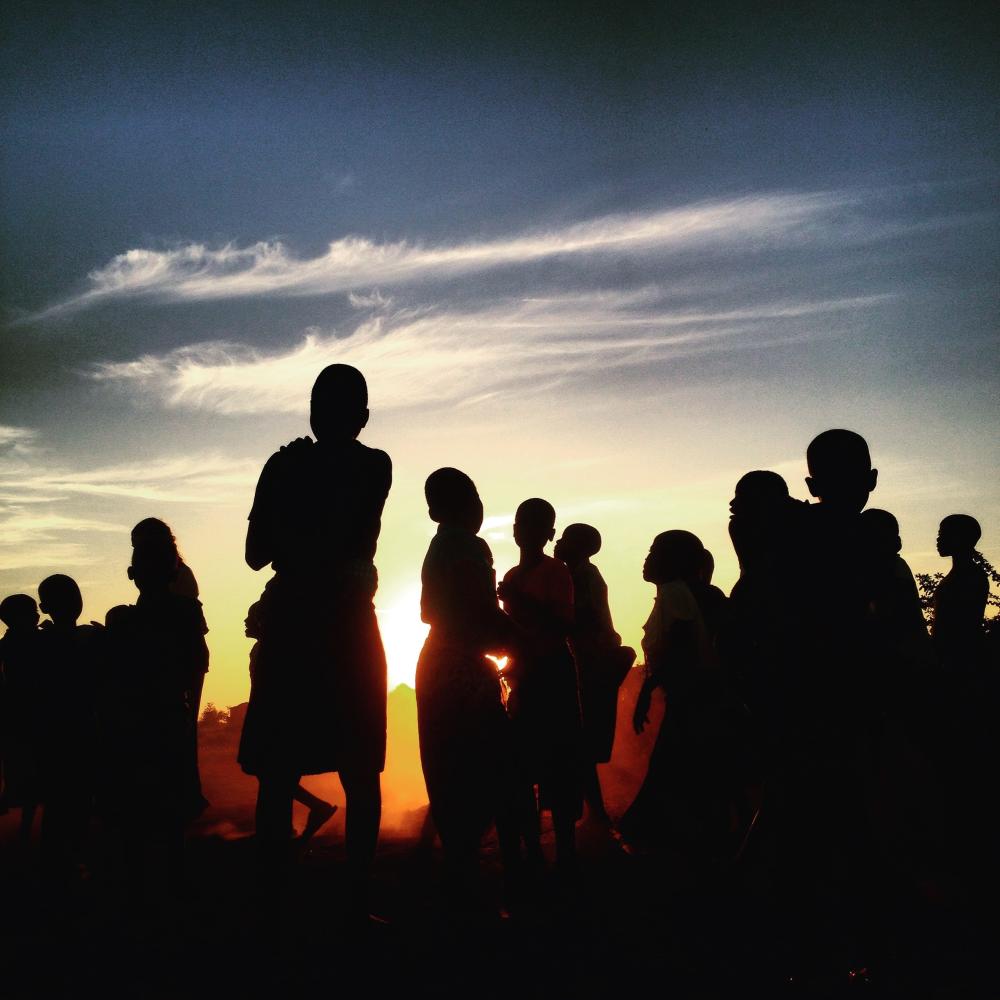
I was privileged to grow up in a great movement of people turning to God all around me on the north coast of Honduras. I was privileged to know great Honduran Christian servant-leaders. I was privileged to watch a people freed to plant church after church within their own culture and beyond. I was privileged to see the Spirit poured out among the churches of northern Honduras, and this vision will always help shape my hope of what the church can be.
One of my favorite memories of my father is a trip I took with him as a young teenager. It was to a village named La Estancia high in the mountains of Honduras. This was a regular discipling visit with a pastor named Alfonso. Alfonso had very little education, but this hadn’t stopped my father from discipling him to start a church in his home, pastor it and start a couple new ones in nearby villages. During the day, during the mentoring session with Alfonso, he asked my father to preach that night at the church. But instead of agreeing, my father said he wanted to hear Alfonso preach. My father helped Alfonso prepare a sermon with a skit, so he even used that sermon as an opportunity to disciple Alfonso and make him a better preacher. My father, sitting there listening to Alfonso preach, was a loud and clear message to the congregation, too. “This man is a leader.” That night, I remember the church was packed. My father and I sat in the back, and he pointed out to me the signs of health of the church: the church was full of whole families, and the men were seated in front, fully engaged in what was happening. He was discipling me as a future church-planter, too.
The next morning when we were getting ready to leave, Alfonso rode over to where we were staying on his horse. Alfonso was short like most Hondurans, but he sat tall on his horse, and it symbolized to me the impact he was having on his village. La Estancia was in a valley surrounded by mountains. Alfonso swept his arms to encompass all the mountains and said, “There are villages in all these mountains, and we will not stop until we have taken the gospel to all of them.” The Lord had used my father to raise up an evangelist in La Estancia who had the confidence that God would use him to start churches in new places.
Later that morning, a family came by to see my father and Alfonso. They had been won to the Lord by Alfonso’s ministry, but they weren’t from La Estancia but from El Tablon, an hour away. They had been walking to church from their village for each service. They asked my father if it would be possible to hold a service in their home. My father let Alfonso take the lead in the conversation, and Alfonso told the family that not only would they come, they would plant a new church in the family’s home. I got to watch the seed of a new church being planted right there.
My father had a gift for helping the people that the world would ignore, like Alfonso, do great things for Jesus out of simple obedience. God used my father’s discipling to build confidence in people like Alfonso so that they could simply obey Jesus. What started in Honduras among poor farmers empowered to start hundreds of churches spread out into most corners of the globe, but always through disciples reproducing and enacting these ideas themselves.
My father’s passion was for churches, and he planted churches for over 20 years in Honduras. He saw churches multiply through the model of Theological Education and Evangelism by Extension (TEEE). This non-formal pastoral training resulted in about 100 new churches in northern Honduras over 20 years. This model is now used with similar results in Asia, Africa and Latin America, as well as in the United States, and is distributed as Train & Multiply (TM). For this work, Western Seminary awarded him an honorary doctorate in 1979. My parents moved back to the United States in 1985 where my father then coached church-planters in different cultures. He mentored missionaries out of his office at the U.S. Center for World Mission in Pasadena, California, now known as Frontier Ventures. He was a favorite speaker for the mission course Perspectives on the World Christian Movement and was instrumental in shaping YWAM’s church-planting vision. My parents later moved to Washington and my father taught at Western Seminary. He had an impact on many missionaries and agencies, helping them see how simple it could be to plant churches by discipling believers to “simply obey Jesus.” Even after his retirement in Sebring, Florida, he continued to mentor church-planters all over the world.
As I said before, my father’s work could consume him. It was my mother who provided a calm in the storm. My mother was the homemaker, bringing stability and rest to the home. She became my father’s manager, helping him schedule his many trips and appointments. If it weren’t for her administrative skills, my father would have burned out long ago. She became his gatekeeper, making sure as absent- minded as he was, that he honored his commitments and that he slept and ate and rested between trips.
My father had a playful side to him, too. We remember him as the father who loved to spend time with us playing games. He spent hours with us playing his own invented game, War, as well as pinochle and euchre. He invented skits for our Christmases, too. He was a gentle soul, unselfish and fun to be around.
His legacy revolves around two qualities: his passion for discipling that results in healthy churches by “simply obeying Jesus,” and his creativity in designing simple tools such as the Train & Multiply materials, as well as the many skits, role plays and illustrations that made his training come to life. Today, there are people all over the world applying the principles he taught, using the materials he designed, and teaching with the energy that he demonstrated in his skits. He was a trainer par excellence. He truly embodied the words of II Timothy 2:2 that were his motto: “Now teach these truths to other trustworthy people who will be able to pass them on to others.”
Original article as seen at Mission Frontiers


